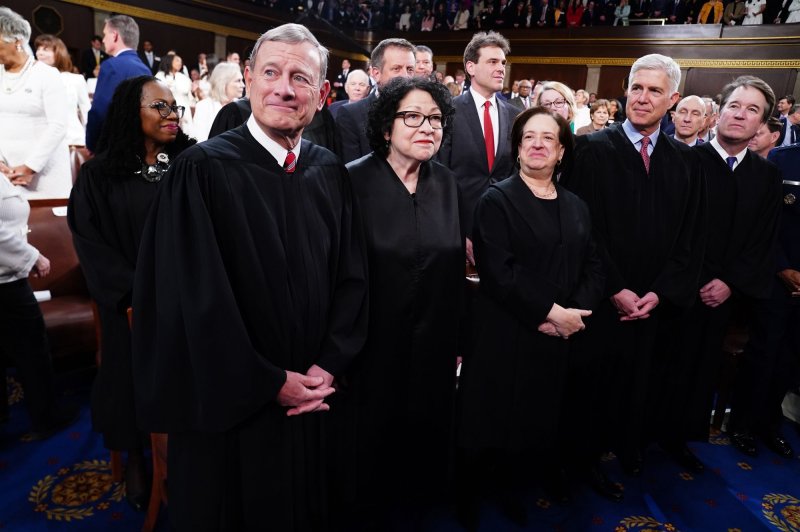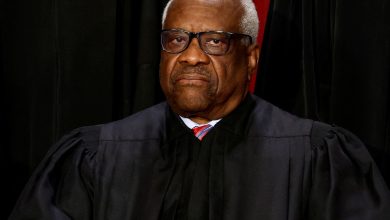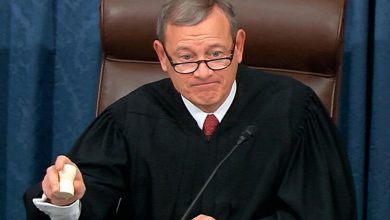Florida resident receives prison sentence for threatening to murder Chief Justice John Roberts of the Supreme Court

A man from Florida, identified as Neal Brij Sidhwaney, received a 14-month prison sentence after confessing to making a threatening call to the U.S. Supreme Court, where he vowed to kill Chief Justice John Roberts, as per federal prosecutors. Court documents revealed that Sidhwaney, aged 43 and residing in Fernandina Beach, dialed the Supreme Court in July, leaving a voicemail where he introduced himself before delivering the threat. He was subsequently arrested in August, according to court records.
In December, Sidhwaney pleaded guilty to transmitting an interstate threat to kill, an offense carrying a maximum penalty of five years in federal prison. While a public defender was listed as Sidhwaney’s attorney in court records, there has been no immediate response to inquiries from USA TODAY regarding his representation. Although the indictment referred to Chief Justice Roberts as “Victim 1,” a psychological evaluation ordered by the court, which was later sealed, identified Roberts as the target of the threat.
The evaluation, which was briefly available online before its sealing, indicated that Sidhwaney was competent to stand trial despite his diagnosis of “delusional disorder with psychosis.” The psychologist noted an improvement in Sidhwaney’s condition with medication but highlighted his persistent “paranoid belief system.” Sidhwaney’s mother mentioned that news broadcasts often triggered his anger, leading him to correspond through letters, emails, or phone calls.
As law enforcement agencies grapple with an increase in threats against court officials, the incident underscores the ongoing challenges in ensuring their safety. The U.S. Marshals Service reported a surge in serious threats against federal judges, with numbers rising from 224 in fiscal year 2021 to 457 in fiscal year 2023. In response to these concerns, President Joe Biden proposed allocating $38 million in new funding through the Department of Justice to bolster the protection of federal judges and address mounting safety issues within the judicial system.




